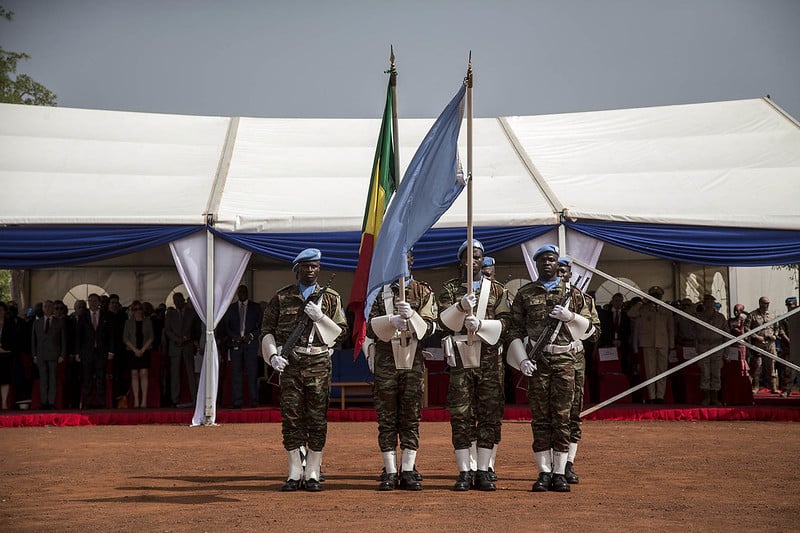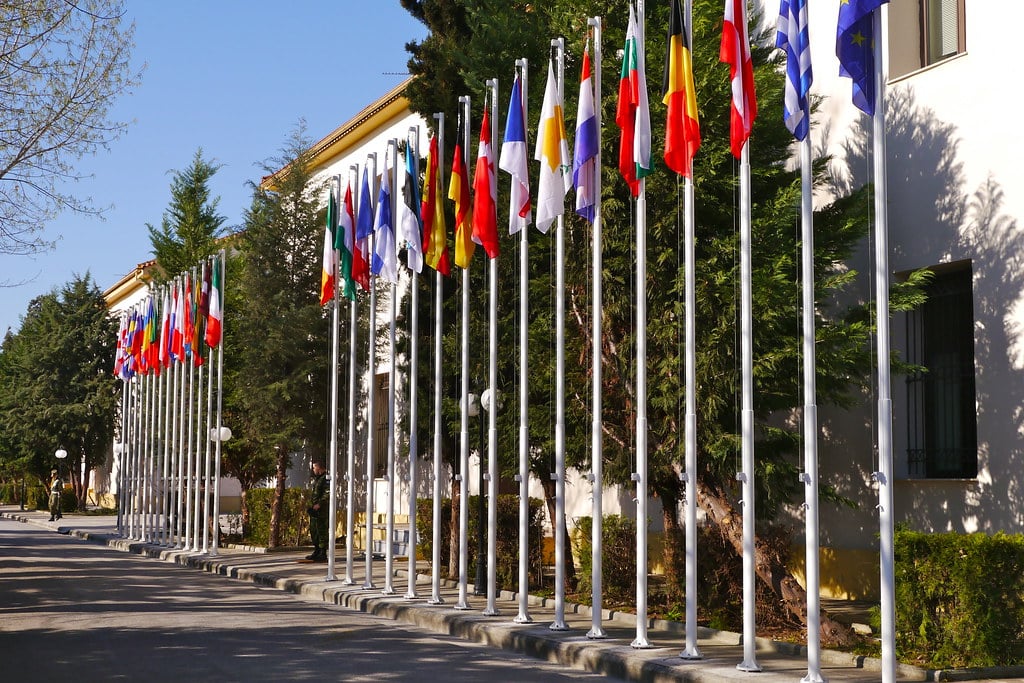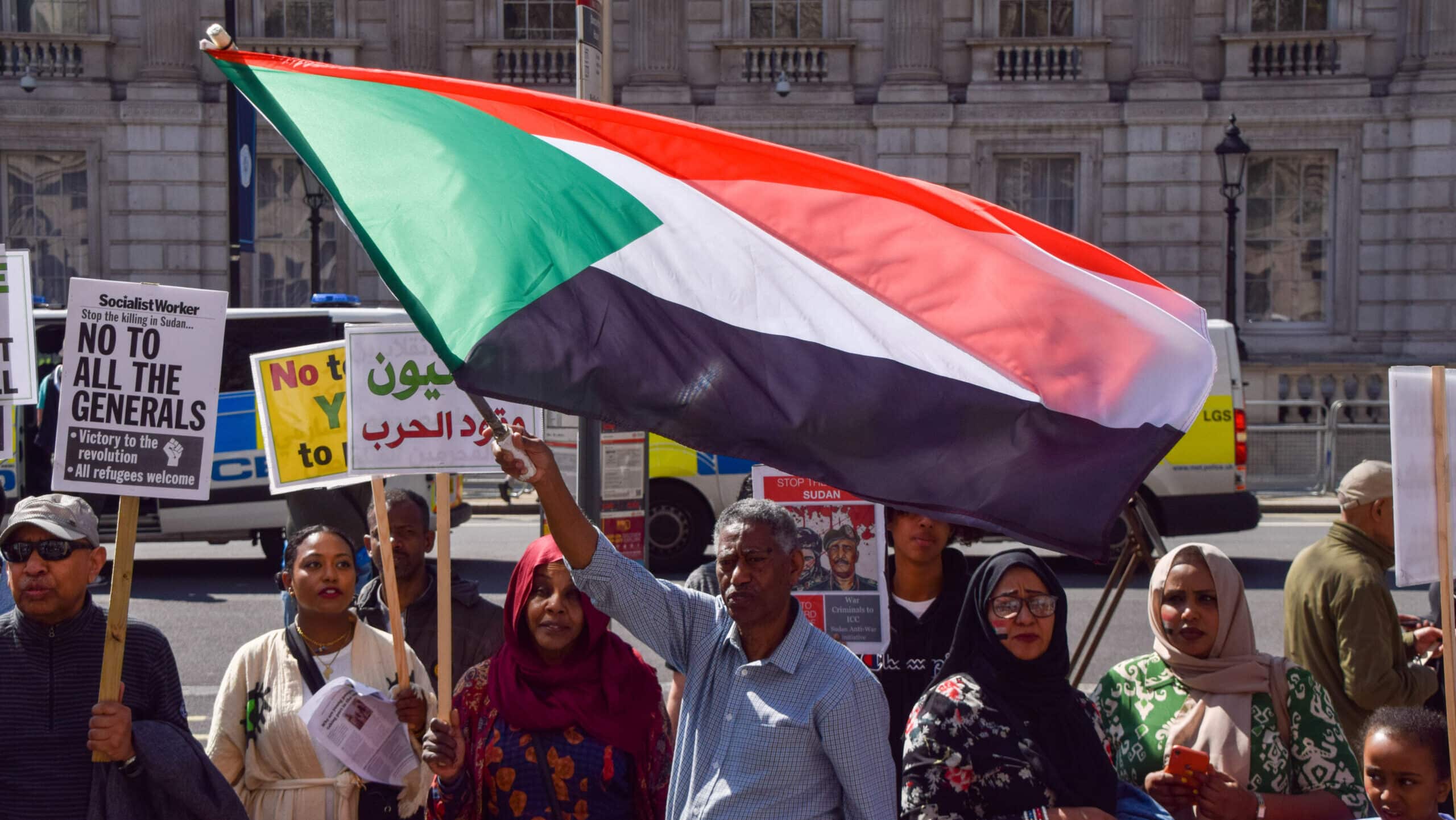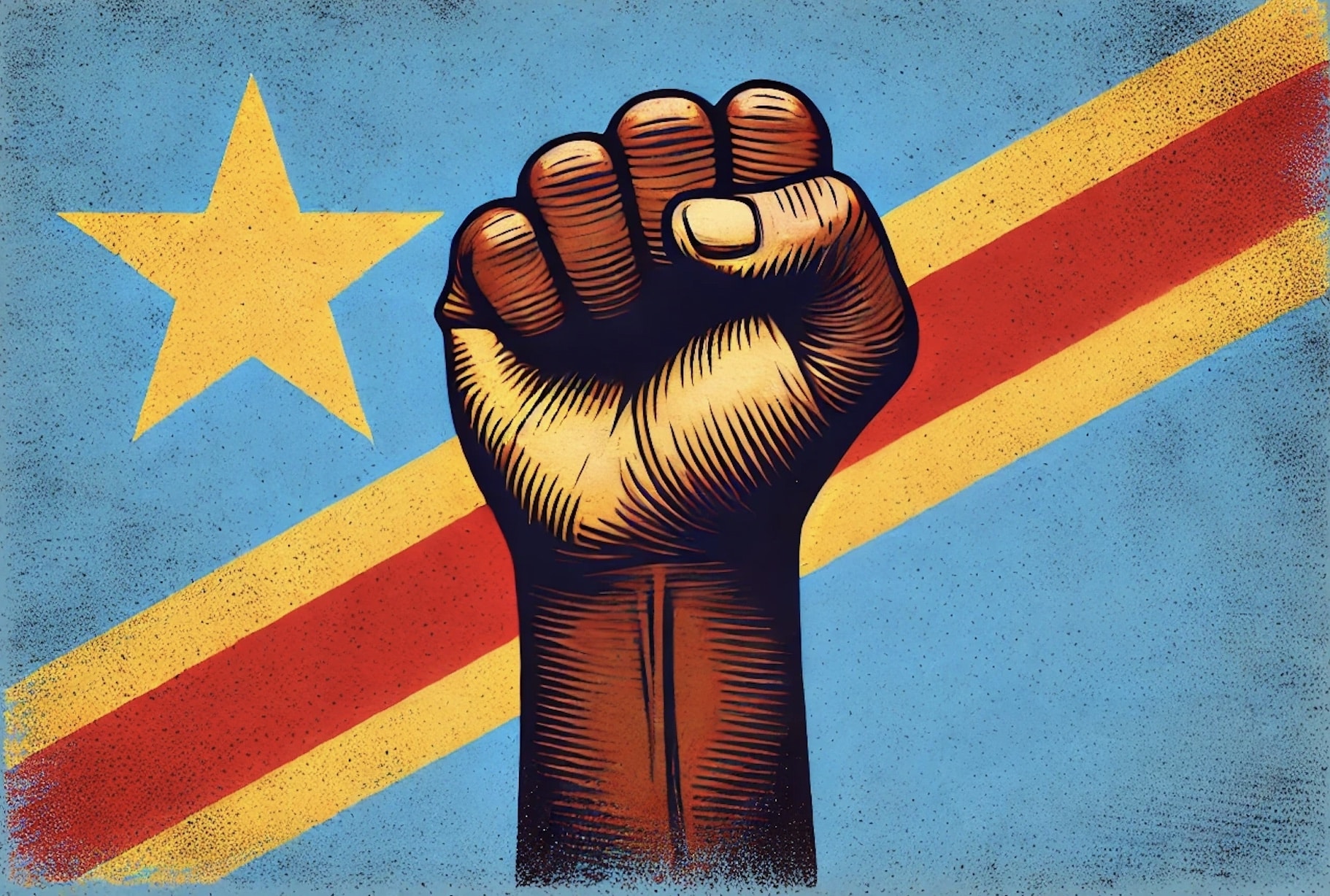Photo: MINUSMA troops in 2018 (source: Flickr)
In recent years, there have been coups in several countries in the Sahel. At the same time, a UN peacekeeping mission has failed and the security situation of the population is deteriorating. Less emphasis on military means and a renewed focus on development cooperation may offer a solution.
At the end of July this year a coup d'état took place in Niger. President Bazoum was ousted by the military and to this day, the West African country is still under military rule. Impeaching a democratically elected leader was against the grain of Western powers such as former coloniser France and the European Union (EU) as a whole, but the United Nations (UN) also spoke negatively about it. However, this coup in Niger should not be seen as isolated. Over the past four years, there have been six different power grabs took place in countries within the Sahel, all former colonies of France. Prior to Niger, Burkina Faso and Mali were both in power twice. Guinea also changed rulers undemocratically once.
Departure of UN troops
This series of power shifts has had a significant impact on the security situation in the region. One of the main examples is that this year the military regime in Mali has private to end the UN peacekeeping mission MINUSMA, requiring the blue helmets to leave the country by the end of 2023. When the Malian government asked the UN for help 10 years ago and the mission was hammered in by the Security Council, was the goal to promote stability and security in Mali, and protect the Malian people. Specifically, this meant that the various jihadist groups, who were increasingly calling the shots in northern Mali, had to be pushed back. Important to note here is that MINUSMA not the desired effect has had. Instead of the UN peacekeeping force, in recent years the Malian government has given a greater role to the Russian mercenary army Wagner to get the country's security in order. Whereas MINUSMA participants had to follow strict rules, Wagner has a freer role. However, this also culminates in situations where the Malian people and Wagner become diametrically opposed, for example, when citizens are perceived as enemies. This makes real security for the people of Mali even more remote than it already was.
All in all, this raises the question of what a proper response by the international community should be. While cooperating with an undemocratic military regime that has come to power is uncomfortable, the alternative - pulling out of the country and a complete loss of dialogue - would be much more damaging to the population. That is why the Netherlands still has an embassy and development cooperation presence in the country, stresses Dutch Sahel envoy Tijmen Rooseboom, in order to stay in dialogue and be able to support the population. When it comes to security and direct military cooperation, Rooseboom says, a dilemma arises.
Kees Matthijssen, retired Lieutenant General of the Netherlands Armed Forces and former MINUSMA commander, also sees this dilemma. Yet he sees more reasons to continue military cooperation, than to stop it. Precisely by stopping or pulling away, Matthijssen says, you leave a void in which the Mali government will turn to other actors like Wagner.
People-centred safety
Ibrahima Amadou Maïga, secretary-general of RENEDEP - an organisation for democracy in Mali - has a twofold response to Rooseboom's dilemma. Maïga also thinks it is important not to end the cooperation, simply because the military regime has the power and can therefore set things in motion. In doing so, Maïga says, it should never be forgotten that "security" is also about human lives. Often "the security of a country" is thought of in an abstract way, whereas at the bottom of the line it should be specifically about the security of the people living in the country. People want to be able to live normally without fear of violence. In any case, they will not be helped when the international community decides to stop military cooperation. Maïga stresses that compromises must be sought, because ignoring the country and its people will only lead to a worsening of the situation. Both Rooseboom, Maïga and Matthijssen agree that aid should ultimately reach the civilians. If security is thought about abstractly, the goal becomes helping the government. But helping the government should instead be a means to an end, in this case the security of the country's citizens.
Rooseboom and Matthijssen also agreed that there should be less emphasis on the military in the quest for security - think development cooperation, for example. Military support is important, but it should not lead to a military solution. It should only be part of a broader, comprehensive solution. So here is also an opportunity for development cooperation to make an important contribution. But what exactly could this role be?
Poverty alleviation as putsch fighting
Research shows that prosperity and the likelihood of coups interrelated. A lower level of prosperity makes a country more vulnerable to coups, and a higher level of prosperity actually protects a country from this. Through development cooperation and international poverty reduction, an attempt can be made to increase a country's prosperity, which would therefore generally ensure fewer coups. The Netherlands currently has broad development relations with 12 African countries, including both Mali, and Niger and Burkina Faso. The aim of this is to raise prosperity in a broad sense. Regardless of the amount of money going to these countries, opting for broad development relations is a good strategy, precisely also to combat coups. It is therefore problematic that general financial aid from the international community is declining, and that Dutch parties like PVV and VVD even want to abolish development aid altogether. Over the past 23 years, development aid for countries in sub-Saharan Africa has been decreased from 4% to 2.5%. An important footnote is that broad development cooperation only makes sense if it reaches the people and does not remain with the government. This very fact is an additional reason to continue working with undemocratic governments as well, as it is the only way that any attempt can still be made to control what the end station of development assistance is.
It can be concluded that development cooperation should play a more important role in countering coups - and thus promoting security in the Sahel - than it currently does. It sounds like a logical move to fight insecurity through military means. While this may also be a good measure in the short term, focusing on development cooperation is much more valuable for a broad, long-term solution. This is because the deeper problem in a country like Mali is that half the population lives in extreme poverty and has no access to education or employment. This creates a fertile breeding ground for armed groups. Fighting poverty among the population creates a form of security in which civilians are central.
This article is based on a conversation between Kees Matthijssen, Tijmen Rooseboom and Ibrahima Amadou Maïga, among others, that took place at the annual Africa Day. You can watch the entire conversation this page looking back.





